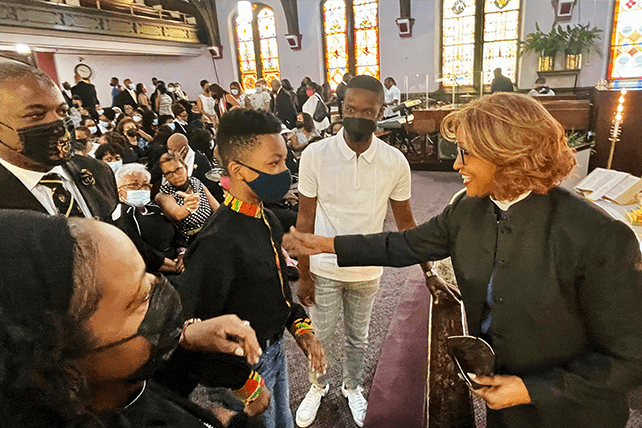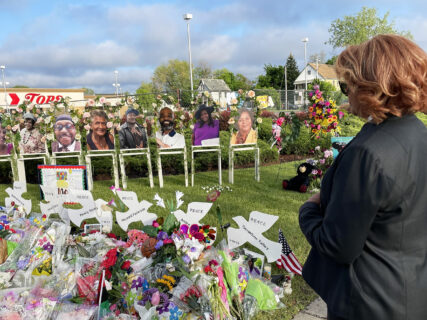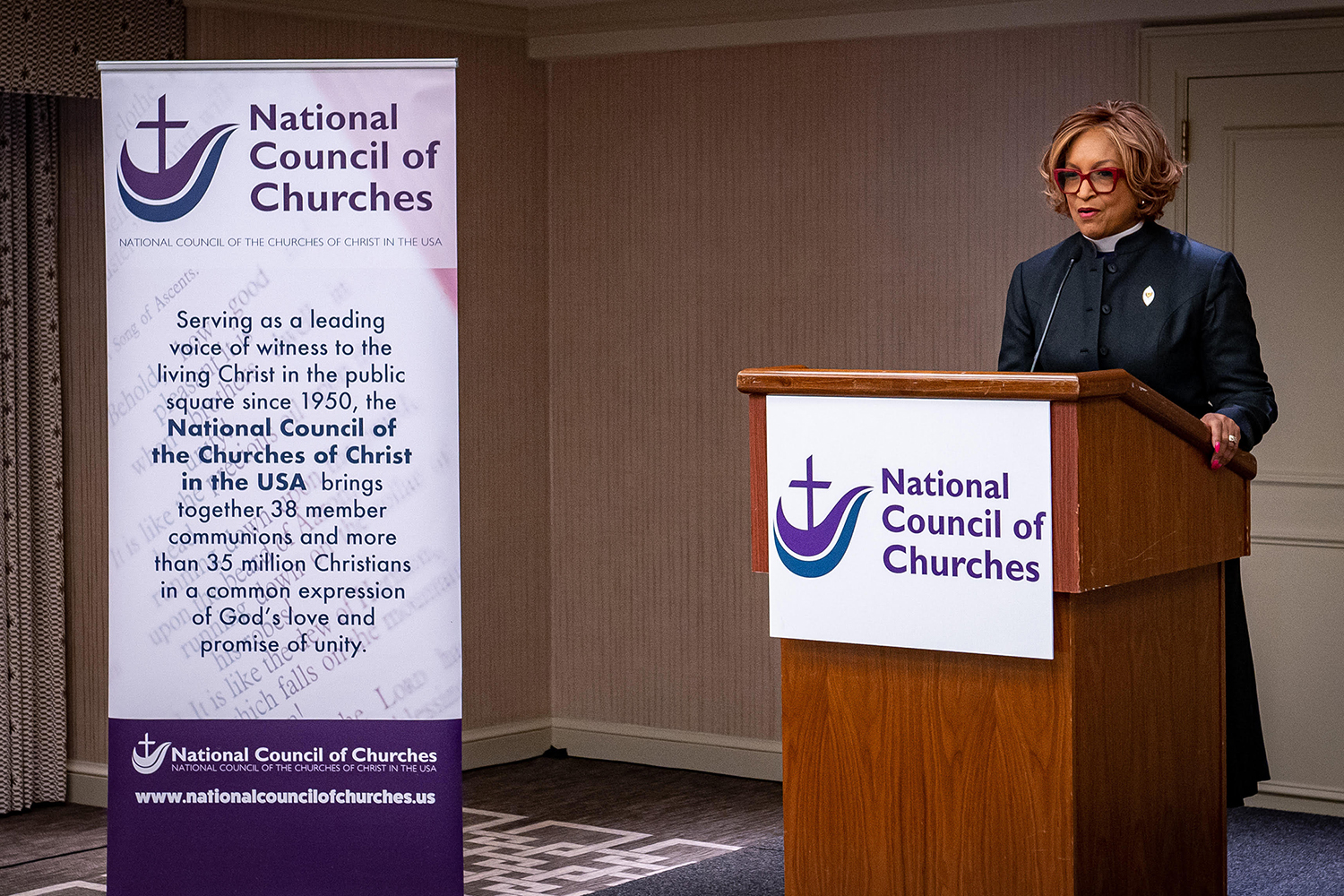The NCC’s general board adopted a resolution this month (May) that called on the president and Congress to pass legislation that would end what it said were “the massacres from weapons of war in our communities.” What do you think it will take for there to be an agreement on this hotly debated issue?
A memorial in front of Tops supermarket in Buffalo, N.Y., featured photographs and flowers to remember those killed in a mass shooting at the market in 2022. Courtesy of Bishop Vashti McKenzie
Well, it amazes me that we cannot figure out how we can have gun safety and have a right to bear arms at the same time. We have fabulous intellect and creative and innovative people and we ought to be able to come up with a plan. I don’t think people realize what an assault rifle does to a body: When 100 rounds go into the body, there’s nothing left. We’re trying to take the weapons of warfare off the streets, the assault rifles and the magazines that turn a regular weapon into that kind of weapon.
Until all of us care about the rest of us being safe, then nothing will be done.
Institute for Religion and Democracy President Mark Tooley, who is a longtime critic of the NCC, tweeted recently that he has to explain your organization to “anybody under age 60.” And, he added: “Its demise is instructive: vague theology & chronic political activism.” How do you react to that appraisal?
NCC came together because faith leaders realized collaboration was better than competition. And so they came together to collaborate, not to merge their theologies. They came together to collaborate in response to a social condition of the industrial age where children and adults were being harmed. And so, just as we care about whether children go to bed with empty bellies or full bellies, we’re also concerned about the practice and policies that force children to go to bed hungry. And so you may consider it vague and may consider it chronic activism. But if someone doesn’t speak out, then we’re always waiting for somebody to ride in on a white horse and rescue us and we can’t do that. And so it’s up to us who are already on the ground to be able to give some practical hands-on — not just theory but practical hands-on — application of these entities that come together to make up NCC.
Bishop Vashti McKenzie addresses the Governing Board Health and Wellness Task Force in May. Courtesy of Bishop Vashti McKenzie
The NCC and the Religious Action Center of Reform Judaism sought the guidance of Harvard students in recent months on how best to work on reparations. What do you consider the most important advice that they have given you that the NCC hopes to heed?
A part of what was engaging was the fact that Christians and Jews were able to address this subject together, and that both had interests and both have sacred texts to support it, which defies the myth that this is only an African American thing. What excited me about this Harvard project is that you have young minds, addressing an old subject and coming up with something fresh: the Bible study that NCC is going to do on June the 12th for six weeks, leading the Bible study in a virtual setting where we invite others to come and join us in this subject.
You have been the first woman bishop of the African Methodist Episcopal Church and now you’re the first African American woman president and general secretary of the NCC. Do you expect to break any more barriers before you truly retire?
I didn’t expect to break the barriers that I have. (laughs) You don’t get up in the morning and say, “OK, what mountain shall we climb today?” That’s not how that happened. I remember when I began to feel the call into episcopal service, (Howard Divinity School) Dean Lawrence Jones said: “There are people who pursue the episcopacy and there are those for whom the episcopacy pursues. Stand still and wait to see what God says.” It came looking for me and I answered and pursued.
The same with NCC. I was standing at an event and someone came up to me and said to me, “NCC is looking for an interim leader. Would you be interested in it?” I said, “This is not the time or place to discuss it.” We were standing at a funeral. “If you seriously want to engage me in a conversation, give me a call.” And they did.
This article originally appeared here.



